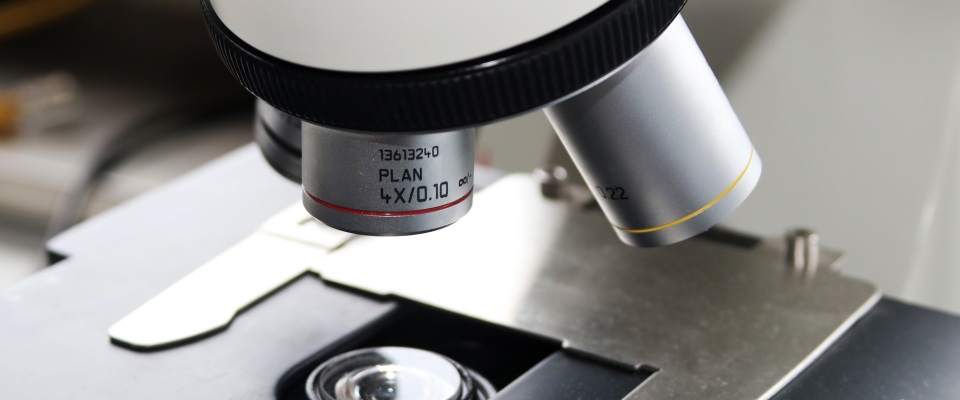
The University of Oxford and Selvita Collaborate to Advance Potential Therapeutics for Parkinson's Disease
PR Newswire
OXFORD, England and KRAKOW, Poland, June 5, 2023
OXFORD, England and KRAKOW, Poland, June 5, 2023 /PRNewswire/ -- The University of Oxford and Selvita (WSE: SLV), one of the largest contract research organizations in Europe, announced an integrated drug discovery collaboration in the area of Parkinson's disease.
While Parkinson's disease is the second most common neurodegenerative disease affecting ~7 million people worldwide, there are only symptomatic therapies available. At the molecular level, it is caused by the build-up of a small protein called alpha-synuclein which forms aggregates inside vulnerable neurons. The inability of cells to efficiently clear these aggregates may lead to the death of neurons and the emergence of characteristic symptoms of the disease. Professor George Tofaris and his Team at the University of Oxford have identified key protein disposal factors that affect alpha-synuclein aggregation, and could be important drug targets for disease modification.
Taking advantage of Selvita's experience in the areas of protein degradation and neuroscience, Professor Tofaris and his team have worked with Selvita to develop promising prototype compounds that efficiently promote the clearance of alpha-synuclein aggregates. The project is now being continued with an aim to progress the compounds further along the drug discovery pipeline by improving their pharmacological properties and their efficacy.
"There is extensive evidence from genetics and pathology implicating alpha-synuclein aggregates as the cause of Parkinson's. Therefore, promoting the ability of nerve cells to rid themselves of these aggregates is a rational therapeutic strategy in this group of diseases." – commented Professor George Tofaris, Professor of Neurology and Translational Neuroscience at the University of Oxford.
"Combination of Selvita's drug discovery expertise and the world-class innovative research conducted at the University of Oxford, create this exquisite collaboration which holds an immense potential to address the urgent need for disease-modifying treatments to combat Parkinson's disease. We are very excited to continue working with Prof. Tofaris and his Team." – added Edyta Jaworska, Vice President Sales, Drug Discovery Europe and Asia at Selvita.
Parkinson's disease
Parkinson's disease is the second most common neurodegenerative disease affecting ~7 million people worldwide. Currently there are only partially effective symptomatic therapies but no treatments to stop or slow down the disease. Parkinson's primarily affects movement and posture due to the death of dopamine producing nerve cells. Poor smell, sleep or mood disturbance and other difficulties often start decades before the movement disorder and become more prominent as the disease progresses, with a significant impact on the quality of patients' and carers' lives.
Aktie im Fokus
|
Purewave Hydrogen Corp
0,2395
€
+8,86%  |
Kurse
 |
About the University of Oxford
Oxford University (www.ox.ac.uk) has been placed number one in the Times Higher Education World University Rankings for the sixth year running, and number two in the QS World Rankings 2022. At the heart of this success are the twin-pillars of our ground-breaking research and innovation and our distinctive educational offer. Oxford is world-famous for research and teaching excellence and home to some of the most talented people from across the globe. Our work helps the lives of millions, solving real-world problems through a huge network of partnerships and collaborations. The breadth and interdisciplinary nature of our research alongside our personalised approach to teaching sparks imaginative and inventive insights and solutions. Through its research commercialisation arm, Oxford University Innovation, Oxford is the highest university patent filer in the UK and is ranked first in the UK for university spinouts, having created more than 200 new companies since 1988. Over a third of these companies have been created in the past three years. The University is a catalyst for prosperity in Oxfordshire and the United Kingdom, contributing £15.7 billion to the UK economy in 2018/19, and supports more than 28,000 full-time jobs.
About Selvita [SLV]
Selvita is one of the largest preclinical contract research organizations in Europe, driven by a clear mission: to offer a comprehensive scope of services bridging the gap between early drug discovery and the clinical stage of drug development.
Selvita provides comprehensive solutions supporting Clients and their drug discovery projects, across a broad range of therapeutic areas, specializing in infectious diseases, inflammation, fibrosis, and oncology. The Company offers a range of stand-alone or fully integrated drug discovery and development solutions spanning the entire value chain from early drug discovery to preclinical development. On top of that Selvita also offers analytical support of drug development and contract testing studies.
Selvita, established in 2007, operates globally with almost 900 highly qualified employees, of which over 40% hold a PhD degree. The Company's research sites are in Krakow (HQ), Poznan, Poland, and Zagreb, Croatia. The international offices are located in Cambridge, MA, and San Francisco Bay Area, in the U.S., as well as in Cambridge, UK.
Ardigen, a bioinformatics company harnessing advanced Artificial Intelligence methods for novel precision medicine, is part of Selvita Group portfolio of companies. The company employs over 160 professionals.
Selvita is listed on the Warsaw Stock Exchange (WSE: SLV).
For more information, please see www.selvita.com.
![]() View original content:https://www.prnewswire.com/news-releases/the-university-of-oxford-and-selvita-collaborate-to-advance-potential-therapeutics-for-parkinsons-disease-301842113.html
View original content:https://www.prnewswire.com/news-releases/the-university-of-oxford-and-selvita-collaborate-to-advance-potential-therapeutics-for-parkinsons-disease-301842113.html
SOURCE Selvita

Mehr Nachrichten zum Wertpapier kostenlos abonnieren
(Mit der Bestellung akzeptierst du die Datenschutzhinweise)

Hinweis: ARIVA.DE veröffentlicht in dieser Rubrik Analysen, Kolumnen und Nachrichten aus verschiedenen Quellen. Die ARIVA.DE AG ist nicht verantwortlich für Inhalte, die erkennbar von Dritten in den „News“-Bereich dieser Webseite eingestellt worden sind, und macht sich diese nicht zu Eigen. Diese Inhalte sind insbesondere durch eine entsprechende „von“-Kennzeichnung unterhalb der Artikelüberschrift und/oder durch den Link „Um den vollständigen Artikel zu lesen, klicken Sie bitte hier.“ erkennbar; verantwortlich für diese Inhalte ist allein der genannte Dritte.




